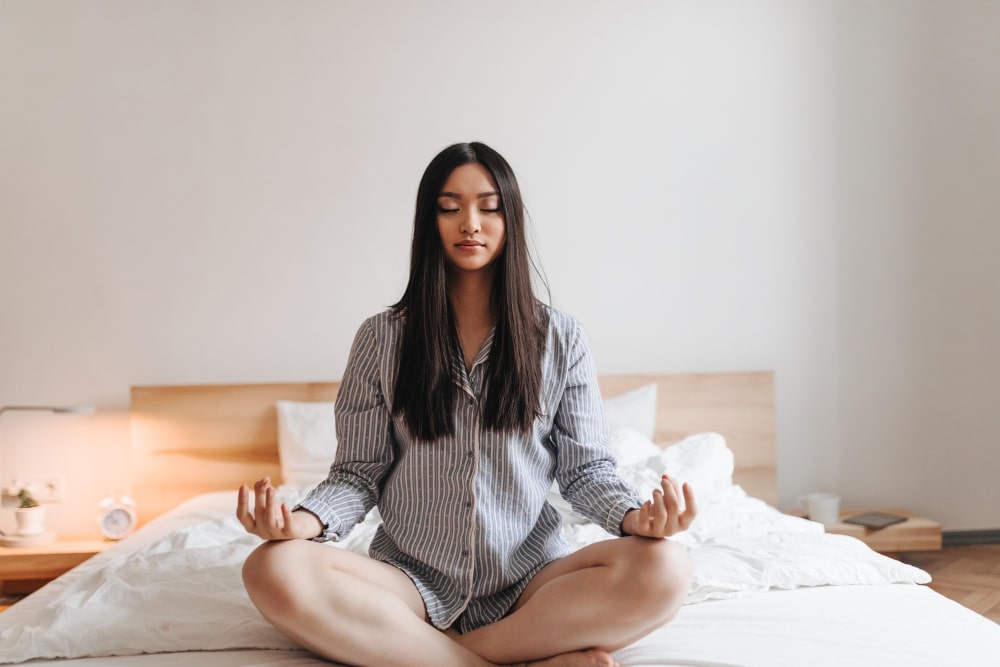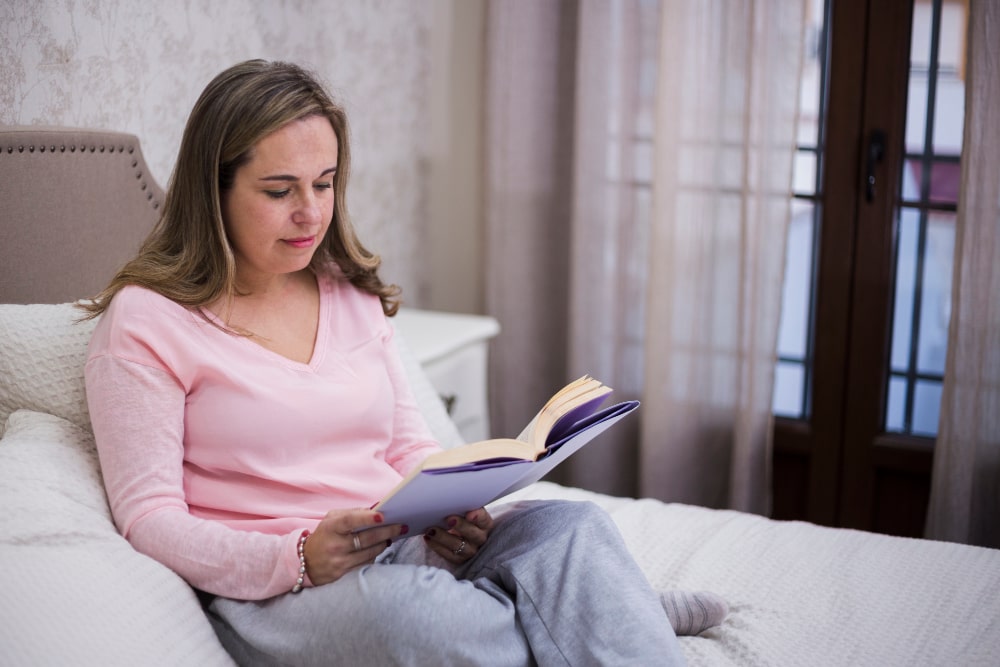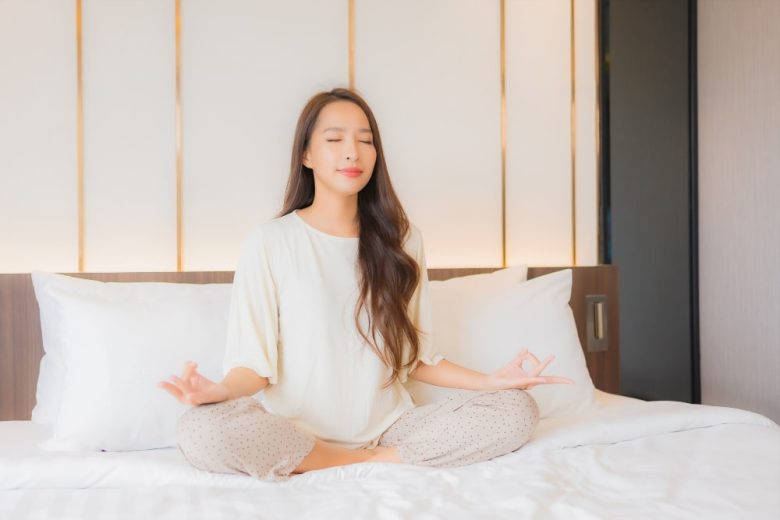Do you often feel tired and stressed at the end of the day? Do you lie awake in bed for hours, unable to sleep? If so, you may need to incorporate some self-care practices into your bedtime routine. Taking care of yourself before bed can not only help you get a better night’s sleep but also improve your overall well-being.
Many of us have busy lives and struggle to find time for self-care. If we do make time, we may not know where to start or what activities will actually benefit us. That’s why today I’ll share some simple and effective self-care methods that you can incorporate into your bedtime routine.
After implementing these practices, you will notice that you not only sleep better but also feel more relaxed and refreshed the next day.
Why is Self-Care Before Bed Important?
Taking care of yourself before bed is crucial for both your physical and mental well-being. Our bodies and minds need time to unwind and recharge after a long day. Neglecting this time can lead to sleep disturbances, increased stress levels, and overall burnout. Therefore, the quality of your bedtime routine can greatly affect your overall health.
Here are some reasons why incorporating self-care into your bedtime routine is beneficial:
- Helps reduce stress and anxiety
- Improves sleep quality
- Increases energy levels during the day
- Promotes better physical health (e.g., reduces muscle tension, boosts the immune system)
- Boosts mood and overall well-being.
In addition to these benefits, practicing self-care before bed can also improve our relationships with others. When we are well-rested and less stressed, it is easier for us to communicate effectively and handle conflicts calmly and rationally.
Related Reading: 7 Top Self-Care Ideas for Mental Wellbeing
Effective Self-Care Practices Before Bed
Practicing self-care before bed does not have to be complicated or time-consuming. Simple, small actions can make a big difference in how we feel and function the next day. Here are some effective self-care practices to try before bedtime:
1. Disconnect from technology

When we constantly check our phones or scroll through social media before bed, it can disrupt our sleep and increase stress levels. The blue light emitted from screens can disrupt our sleep patterns and make it more difficult for us to fall asleep. At least 30 minutes before bedtime, try to disconnect from technology. This will give your brain a break and help you relax more easily.
2. Practice deep breathing or meditation

Taking a few minutes to focus on your breath and slow down your mind can be incredibly beneficial for overall well-being and relaxation. Deep breathing exercises or guided meditations can help quiet the mind, reduce stress, and promote better sleep. You can find many free apps or online resources that offer beginner-friendly meditation practices.
My favorite app for meditation is Headspace, which offers short guided meditations and mindfulness exercises. Some other popular options include Calm, Insight Timer, and Breathe & Think. No matter which app or resource you choose, incorporating a few minutes of meditation into your daily routine can have long-lasting positive effects on both your physical and mental health.
3. Limit caffeine intake

Caffeine is a stimulant that can provide a temporary energy boost, but excessive consumption can have negative effects on our health. It can disrupt sleep patterns and increase anxiety and irritability. Therefore, it is important to limit caffeine intake and be mindful of how much we consume.
Do not consume caffeinated drinks late in the day, especially close to bedtime. This can make it harder for you to fall asleep and get quality rest. Instead, opt for caffeine-free beverages like herbal tea or warm milk before bed.
4. Create a calm environment

Another important thing to do before bedtime is to create a calm and relaxing environment in your bedroom. This is a great way to let your body and mind know it’s time to relax and get ready for sleep. Some tips for creating a calm environment include:
- Keep the room dark and cool, as this can promote melatonin production and make it easier to fall asleep.
- Use calming scents like lavender or chamomile in essential oil form or through candles, or diffusers.
- Invest in comfortable bedding and pillows that will help you feel more comfortable in bed.
- Reduce noise as much as possible, whether it’s from outside or inside the house. You can use earplugs or a white noise machine to help drown out any disruptive sounds.
5. Avoid drinking excessive water

Drinking too much water before bedtime can lead to multiple bathroom visits during the night, disrupting your sleep and making it difficult to fall back asleep. It’s important to stay hydrated throughout the day, but try to limit your water intake in the hours leading up to bedtime. If you do need to drink water before bed, take small sips and use the restroom before going to sleep.
6. Take a relaxing bath or shower

A warm bath or shower can help you relax both your body and mind, making it easier to fall asleep. When you step out of a bath or shower, the drop in your body temperature can signal to your body that it’s time to wind down for sleep.
Try adding some calming essential oils or Epsom salts to your bath for an even more relaxing experience. I always find that taking a bath before bed helps me unwind and clear my mind of any stress or worries from the day. So next time you’re struggling to fall asleep, try taking a nice warm bath or shower before bed.
7. Read a book or listen to soothing music

Reading a book or listening to calming music before bed can help relax your mind and make it easier to fall asleep. Pick a book that you find peaceful and enjoyable, rather than something too stimulating or thrilling. Alternatively, you can listen to soothing music or nature sounds to help calm your mind and drift off into sleep.
8. Invest in a comfortable mattress and bedding
Having a comfortable mattress and bedding can make a huge difference in the quality of your sleep. If you find yourself tossing and turning at night, it may be time to invest in a new mattress or pillows that cater to your specific needs.
Soft, breathable fabrics like cotton or silk can also help promote better sleep by keeping you cool and comfortable throughout the night. This is the best self-care thing to do before bed.
Don’t forget to keep your bedding clean and fresh. Wash your sheets often and try using hypoallergenic products to cut down on potential irritants.
You may also like: How to Make a Good Morning Routine
My Experience
My experience with incorporating self-care things before bed has been extremely positive. Not only have I noticed an improvement in my overall sleep quality, but also in my overall well-being and mindset.
One of the most important self-care habits that I have adopted is creating a relaxing bedtime routine. This includes shutting off all electronic devices at least an hour before bed and engaging in calming activities such as reading, meditating, or journaling. I have found that this helps to calm my mind and prepare me for a restful sleep.
Another important aspect of my bedtime routine is practicing good hygiene habits. This includes washing my face, brushing my teeth, and changing into comfortable pajamas. Not only does this make me feel clean and refreshed, but it also signals to my body that it is time to wind down and get ready for bed.
Final Thoughts
Having a bedtime routine that prioritizes self-care is crucial for overall well-being. It not only helps to improve the quality of sleep but also has a positive impact on mental and physical health.
As mentioned earlier, everyone’s bedtime routine will look different, and it may take some trial and error to find what works best for you. Follow the above tips and incorporate activities that bring you joy, relaxation, and peace. Remember to listen to your body and give it the care it deserves before bedtime.
Frequently Asked Questions
How long should my bedtime self-care routine be?
There’s no fixed duration, but most people find that spending 20–30 minutes on self-care activities is sufficient to promote relaxation and prepare for a good night’s sleep.
Is it okay to use my phone as part of my self-care routine?
It’s recommended to limit screen time before bed since blue light from devices can interfere with sleep. Instead, opt for tech-free activities like reading or meditating.
Can drinking tea before bed help with self-care?
Yes, sipping on caffeine-free herbal teas like chamomile or lavender can be a soothing part of your night routine and may help improve the quality of your sleep. But avoid consuming too much liquid before bedtime, as it can lead to frequent bathroom breaks during the night.
Do you need to stick to the same nightly routine?
While consistency is beneficial for signaling your body that it’s time to wind down, occasional flexibility is fine. The most important thing is to stay committed to incorporating relaxation-focused activities regularly.
Must Read: Effective Ways to Stay Calm Under Pressure



